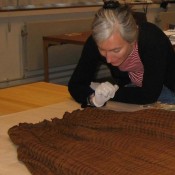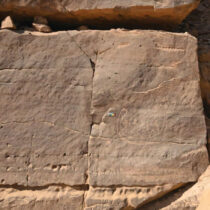Archaeologists have brought to light several medieval farmsteads and burials from the Iron Age near Werne, North Rhine-Westphalia, in Germany.
A preliminary investigation by the Westphalia-Lippe Regional Association (LWL) in January 2023 had already revealed traces of a settlement from the early Middle Ages. At the time, there were several farmsteads on the site, the plots of which were separated from each other by ditches. A residential building usually formed the center of each farm, and then there were several outbuildings such as barns, sunken-featured buildings (so-called pit houses) and often a well.
New findings on early medieval farmsteads
“We were already able to document a well last year,” explains LWL archaeologist Dr. Eva Cichy. For the wood of the well Dr. Thorsten Westphal, head of the laboratory for dendroarcheology at the University of Cologne, determined a felling date of 867 AD plus-minus ten years. A pit house 80 meters to the west probably belonged to another farm. Post pits of a building and an associated well were found in the very east of the survey area. It can be assumed that the areas on the edge of the Lippe floodplain were densely occupied with farms during this time. In the same location, for example, in Weitkamp, just two kilometers to the west, traces of a settlement from the same period were discovered during sand mining around 100 years ago.
Surprise from the Iron Age
A surprise for archaeologists were several graves in Bellingholz South. However, these are much older and can be dated from the Iron Age. In this era it was customary to burn the dead. Burn-pit graves were created in Bellingholz South. Remains of the funeral pyres and grave goods were buried in these pit graves.
Whether traces of a settlement from the same period can still be found is one of the many questions archaeologists hope to answer through further excavations.





